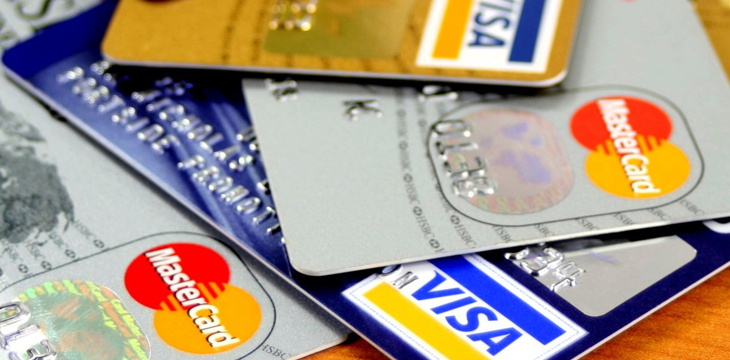|
Getting your Trinity Audio player ready...
|
If the credit card giants want to stifle crypto growth, they are definitely going about it entirely the wrong way. According to a report by Wall Street Journal, Visa and MasterCard will soon introduce higher fees, which is only going to boost the case for crypto transactions, which cost mere pennies, regardless of the size of the transaction. The new fees are expected to be implemented this coming April.
At first, according to a source familiar with the topic, there will only be interchange fees, which are a type of fee paid by merchant banks when accepting a transaction. Merchant banks, such as Bank of America, JPMorgan and Citigroup, are financial institutions that manage accounts for merchants such as Amazon, Walmart, etc.
The card companies argue that the higher fees are necessary in order to cover their costs to make payment processing safer and introduce new anti-fraud and anti-theft security procedures. However, given that Visa’s net income in the fourth quarter of last year was $2.85 billion – a 33% increase year-on year – it doesn’t appear that the company is short on cash. MasterCard, by the way, reported fourth-quarter profits in 2018 of $1.9 billion, also a 33% increase year-on-year.
The merchant banks don’t necessarily have to pass on the increases to the merchants, who don’t necessarily have to pass on the increases to the consumer. However, there aren’t many cases in the history of business when a company has benevolently decided to eat new price increases and save the consumer from the burden. Chances are very good that the increase will have a ripple effect throughout the entire financial industry, making the cost of goods and services go up.
On the other hand, merchants could simply decide to use a safer, less expensive alternative. A purchase worth $400 using cryptocurrency costs pennies, as does a transaction for $8,000 – no percentage of the transaction, no losing major chunks of revenue. Only pennies. If a merchant processes an $8,000 payment with a Visa card, for example, that transaction would cost the merchant about $300-$480, depending on the location. That same transaction, if conducted through crypto, would cost about $0.05.
Visa and MasterCard are having to pay $6.2 billion after losing an anti-trust case in the U.S. They also are looking at reduced profits in Europe as a result of anti-trust investigations. It now looks as though – despite recording billions of dollars in revenue each quarter, they want consumers to pay for their lack of proper management and oversight.

 02-27-2026
02-27-2026 




